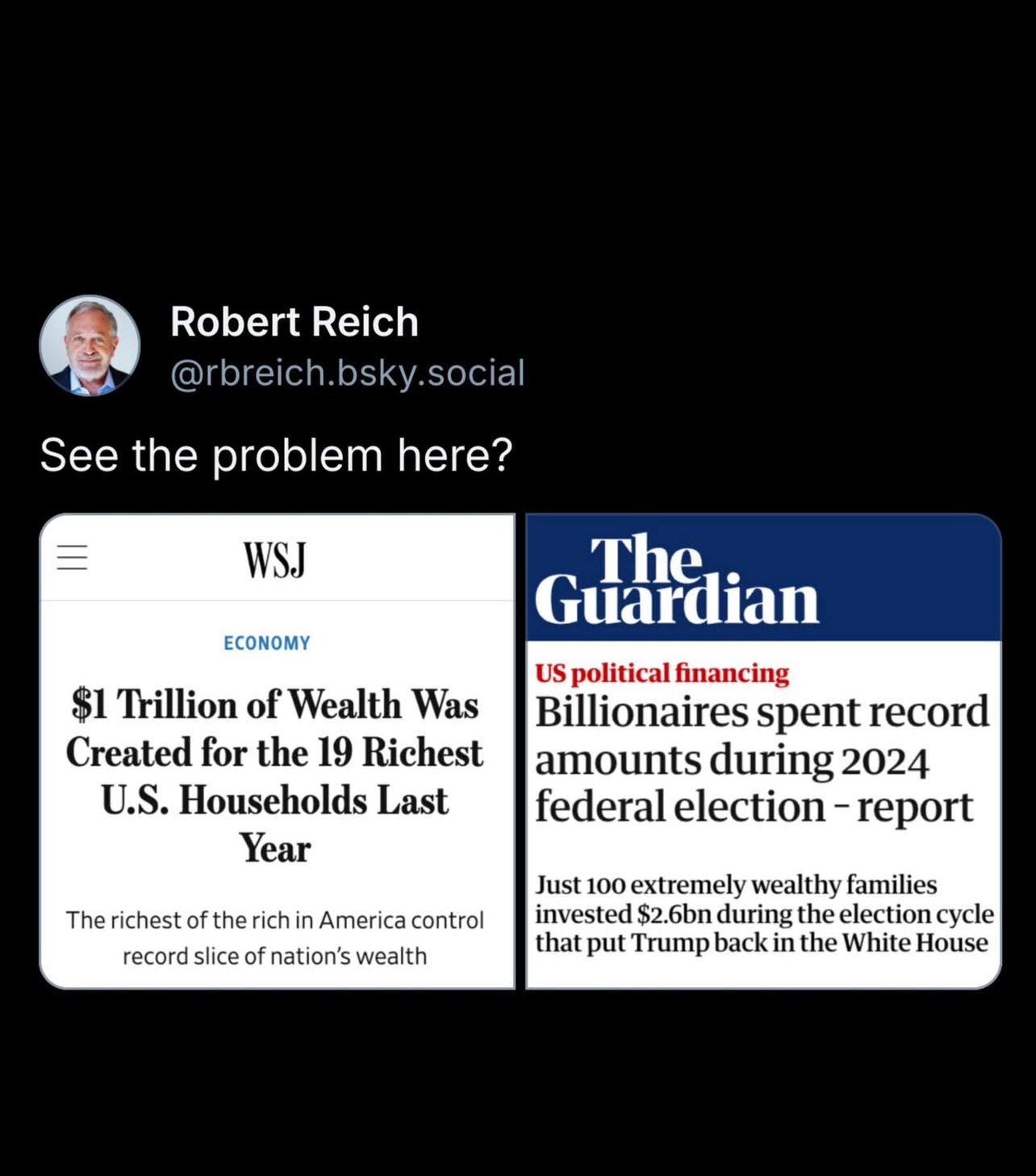Life, Death, and Low Taxes for the Rich
How state and local tax codes benefit the wealthy and monopolies
Welcome to You’re Probably Getting Screwed, a weekly newsletter and video series from J.D. Scholten and Justin Stofferahn about the Second Gilded Age and the ways economic concentration is putting politics and profits over working people.
Who pays higher taxes in your state, billionaires or the middle class?
While Congress begins ramping up its work to extend the 2017 Trump Tax Cuts - the ones that overwhelmingly benefited the wealthiest Americans - it is important to remember that most state and local tax structures stick middle and working class residents with a higher bill than the wealthy.
Look at this map from the Institute on Taxation and Economic Policy. In most states the richest residents have the lowest tax bill!
Furthermore, while the tax code is not a substitute for aggressive antitrust enforcement, a corporate-friendly tax structure only further benefits corporate monopolies. Think about the billions Big Tech receives in data center subsidies or Amazon not facing sales tax in its early years.
Red, Blue, Purple, it doesn’t matter. Most states could do much better. So call your legislator today!
YOU’RE PROBABLY (ALSO) GETTING SCREWED BY:
Big Tech
With both Meta and Google on trial for antitrust violations (in the same building no less), we are in one of the most influential antitrust times in the last 100 years!
To follow the Meta case, the best way to follow along on a daily basis is Big Tech on Trial. For weekly recaps and bigger picture analysis, we encourage you to follow BIG.
For a recap of the first week of Google search's antitrust remedies trial (because they were already found guilty of being an illegal monopoly), here’s a good recap from Karina Montoya.
And while the trials are going on here in the U.S., in Europe, Big Tech got huge fines for violations against their Digital Markets Act. The EU fined Apple €500M and Meta €200M for breaking Europe’s digital rules.
House Judiciary Committee
Legislation being considered by the US House Judiciary Committee, chaired by pro-monopoly Congressman Jim Jordan, would gut the Federal Trade Commission. In Jordan’s budget bill is language from the “One Agency Act” that would remove the FTC’s antitrust duties and transfer them to the Department of Justice.
While there are good reasons for both the DOJ and FTC to have antitrust authority, just as other federal agencies do (like USDA and the Packers and Stockyards Act), the legislation could do much more than just consolidate responsibilities. It could essentially repeal Section 5 of the FTC Act, which allows the FTC to police unfair trade practices and can only be enforced by the FTC. The FTC used this authority to ban noncompetes, sue John Deere for limiting farmers ability to repair farm equipment, and go after the PBMs driving up prescription drug costs.
The Ultra Wealthy
Reporting from the Wall Street Journal reveals the wealthy have gotten richer, and control a record share of America’s wealth. New analysis by Gabriel Zucman, an economist at the University of California, Berkeley, and the Paris School of Economics suggest $1 trillion of wealth was created for the 19 richest American households alone in 2024. That’s more than the value of Switzerland’s entire economy.
In one year, by the end of 2024, the share of total U.S. household wealth for the modern 0.00001%—those 19 households—jumped to 1.8%, or about $2.6 trillion. That is the biggest one-year increase on record, according to Zucman.
Total U.S. household wealth stood at about $148 trillion at the end of 2024, according to a measure Zucman used that subtracts the value of big-ticket items like appliances as well as unfunded pensions from the Federal Reserve’s estimate of household wealth.
Private Equity Owning Daycares
Private equity is taking over childcare, now owning eight of the 11 largest US day care companies. Just like in nursing homes, they maximize enrollment to squeeze profit out.
Elon “Free Speech” Musk
The richest man in the world continues to have insecurity issues…
A story by the New York Times looks at three users on X who feuded with Musk in December and saw their reach on the social platform nearly vanish overnight. This would seem to suggest Musk or others at the company have the power to punish critics and that they may be willing to use it.
Watching Sports…
J.D. and I are big fans of reporter Joon Lee who has a new YouTube channel we shared a couple of weeks back. For his latest video, Joon interviewed J.D. about his efforts to End Major League blackouts.
Book Club
In case you missed it, April’s book is “99% Perspiration” by journalist Adam Chandler who writes The Crunchwrap.
Here’s our conversation:
BEFORE YOU GO
Before you go, I need two things from you: 1) if you like something, please share it on social media or the next time you have coffee with a friend. 2) Ideas, if you have any ideas for future newsletter content please comment below. Thank you.
Break ‘Em Up,
Justin Stofferahn









Make the wealthy pay their fair share.